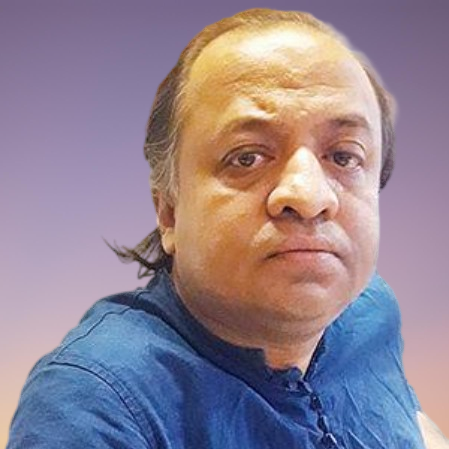Culture

Writer-translator-video artist-cultural curator, Kristian Carlsson was born in 1978 in Malmö, Sweden, and began writing poetry at fifteen. He made his publication debut in 1996 and has published 25 books in Swedish - in genres ranging from poetry to prose to conceptual pieces. He also writes original fiction in English published in several magazines in England, USA and Canada, and in 2013 the thematic prose collection "Small Press, or Else: (Dracopis Press) was published. As a translator he has mainly worked in the field of poetry; translating to and from English, such as by introducing contemporary Swedish poetry in English and women Beat Poets from the US in Swedish. He has also translated accomplished Bengali poet Anisur Rahman's first collection of poems in Swedish "Sex Arstider" [Six seasons] in 2012. Among his most recent translations into Swedish, are "Bengaliska Moln" [Bengal Clouds] introducing 17 contemporary Bengali poets and a new volume of Rabindranath Tagore's poetry.
Kristian's themes include a personal and psychological journey, spirituality, childhood, nostalgia and more. He also works for the reform of language. Architecture and painting are his pet subjects and he has taken many of his symbolic articulation from them. The poet has visited Dhaka several times, and spoken to the writer-cum-art critic on aspects of poetry and translational work.
How did you develop an interest in Bangladesh's poetry? How do you translate the Bengali poets when you do not know the language?
I started reading Rabindranath Tagore in my teens -- that is, the English writings of Tagore. I found it interesting enough to carry with me - till this day - the impression of his aphoristic writings in Stray Birds and Fireflies. Then I met Bengali poet Anisur Rahman, whose works I have translated into Swedish, and who introduced me to the contemporary poetry of Bangladesh. And as I started reading the poets I just couldn't stop expanding my anthology of Bengali poets; although it still is just 17 poets, and there might be opinions about whom I didn't choose; especially as half of the selected poets are women, and that will make it quite a different anthology. But it has got good reviews from a Swedish perspective.
As a poet, how is it important for you to translate poetry?
Translation is very important for me. It is a new way to look at your own language. By translating, you find new words, also pick up old words and reuse it. Through the works, you help to make a language alive. Everybody can be a poet for 10 years, but if you expect to be a poet all your life, you need language contribution. There are many ways to do that, I guess, such as getting involved in the development of language of your children since infancy.
Where is the place of poetry in society today?
Poetry has no given place in society. Poets are not economically feasible in our society. Poetry is not necessary for the family, for society or state. Poetry has no place in the job market, in the capital market, in policymaking, or in a government agenda. Rather, poetry writing by any member of the family causes huge sufferings in terms of finance, social status and future security. Publishers also don't want to publish poetry books. But it is essential to the survival of language. It is a matter of working for the good of language, and then language works for the good of society. I don't expect my society to love or understand what I do. There is a mutual respect between poetry and language - they can occasionally mistreat each other, but are bound to be together, for better and worse. Still, I work within society. However, in that respect much of my work is in vain. I have to make myself useful. And I only have expectations on myself.
Tell us about the different genres of Swedish poetry.
1940 was a very significant year for Swedish poetry. Modernism appeared in Swedish poetry at that time. 1980 is another significant era for Swedish poetry, when poets introduced new language in their poetry. In current time, Swedish poetry delves deep into conceptual and language materialism. The genre of metaphor is already dead in Swedish poetry.

























Leave a Comment
Recent Posts
Auspicious beginnings, but a l ...
The newly elected government of Bangladesh is now in office, and the e ...
Caught between tigers and pira ...
Over 10,000 fishermen in the Sundarbans have suspended their fishing a ...
Historic Chawk Bazar comes alive with iftar items on ..
Shaping Young Conservationists: School Conservation ..
Iran has said it has reached an understanding with t ..
New Finance Minister Amir Khosru Mahmud Chowdhury